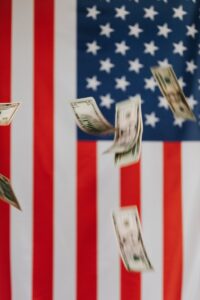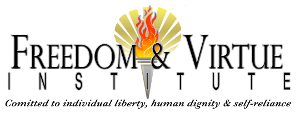“You can’t have it all,” is a cliché we’ve all heard, probably to our annoyance. Like all clichés, it could be true or not depending on the context and the specific meaning intended by the terms. In the sphere of public policy, though, it does convey an important truth, one that we should keep in mind whenever politicians promise bigger, better, and more.
The limits faced by policy decision-makers can be understood by reference to two, interrelated principles from economics: trade-offs and opportunity cost. The concept of trade-offs simply means that every decision involves a choice not only to do something but also not to do something else. The opportunity cost is what is sacrificed by not doing that something else.
 Consider a city council that has a million dollars to spend. Options before them are building a new park or replacing a failing bridge. Each project costs a million dollars. They can’t do both. If they choose the park, some will complain that they are endangering residents by neglecting the bridge. If they choose the bridge, some will complain that they are undermining the welfare of children by not providing a safe place to play. The council members can study both projects carefully and fully appreciate the benefits and drawbacks of both, and yet in the end they must make a decision to go one way or the other. There is a trade-off
Consider a city council that has a million dollars to spend. Options before them are building a new park or replacing a failing bridge. Each project costs a million dollars. They can’t do both. If they choose the park, some will complain that they are endangering residents by neglecting the bridge. If they choose the bridge, some will complain that they are undermining the welfare of children by not providing a safe place to play. The council members can study both projects carefully and fully appreciate the benefits and drawbacks of both, and yet in the end they must make a decision to go one way or the other. There is a trade-off
There is also an opportunity cost. If they choose the bridge, the property values that would have been enhanced by the park will not rise, and so additional property tax revenue will be lost. If they choose the park, the expense of replacing the bridge may rise as its condition continues to deteriorate. There will be other financial opportunity costs either way, and there will also be costs that are not financial.
Some will claim they have the solution to this dilemma: Raise taxes! The city can pay for both, and all this hard decision-making can be avoided.
Wrong. Raising more revenue does not eliminate trade-offs and opportunity costs, it merely shifts them elsewhere. Taking more money out of the pockets of city residents means that they have less money to spend on restaurants, shops, and other businesses in the city. The city has made a trade-off between a park and bridge on one hand, and a more vibrant local economy on the other. Opportunity costs might include lower income tax revenue as employees are let go or wages decrease in response to lowered demand or even the closure of businesses that cannot sustain the downturn.
Understanding the reality of trade-offs helps protect against the inflation of politics into a war on which cosmic justice depends. Yes, policy debates do sometimes involve life-or-death matters or questions of fundamental moral importance. But usually, they don’t, even though they are portrayed so in a rhetorical attempt by one side or the other to gain the advantage of moral high ground. Whether and how to provide a path to citizenship for illegal immigrants is an important matter that has moral dimensions, but it is not a battle between right versus wrong; it is a choice among many options that all entail pros and cons—that involve trade-offs. Similarly, whether an income tax regime should be progressive or flat is a policy question about which moral arguments invoking justice, fairness, and equality can be made, but it is not a Manichean choice between good and evil. There are advantages and disadvantages to either approach, and decent, reasonable people can disagree as to which choice is superior.
Trade-offs are a reflection of the fact that, in this world, knowledge, resources, time, and other goods are not infinite. In Christian eschatology, we hope for a “new heaven and a new earth” (Rev. 21:1), where the limitations we now experience are overwhelmed by perfect happiness. Until such time, we can’t have it all—even if politicians pretend otherwise.


